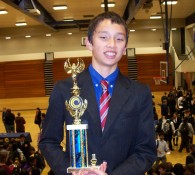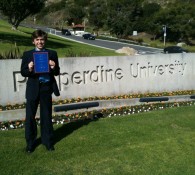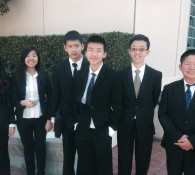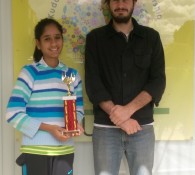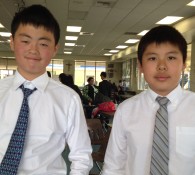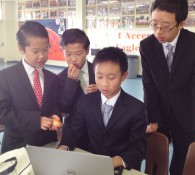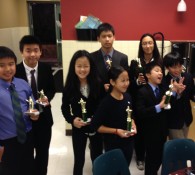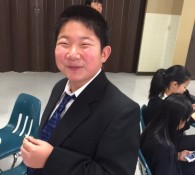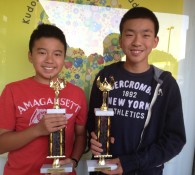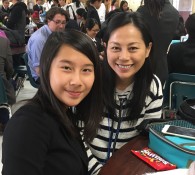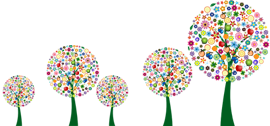About Kudos
Kudos College of Youth Leadership teaches valuable leadership skills-preparing students for success in college and beyond.
Students leave Kudos as independent, organized, confident, and imaginative young adults who are able to think critically and express themselves eloquently.
This well-roundedness comes through learning to become proficient in our three areas of focus: COMMUNICATION SKILLS, PERFORMANCE SKILLS, and LAW, GOVERNMENT, AND CITIZENSHIP.
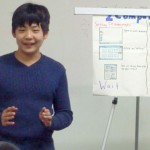 The first area of focus is COMMUNICATION SKILLS. A strong leader is also a strong communicator, and this can be instilled in children from an early age by encouraging them to speak in public-but also by teaching them to fully understand the uses of language, and to learn to listen, to think critically, and to formulate and develop an argument.
The first area of focus is COMMUNICATION SKILLS. A strong leader is also a strong communicator, and this can be instilled in children from an early age by encouraging them to speak in public-but also by teaching them to fully understand the uses of language, and to learn to listen, to think critically, and to formulate and develop an argument.
Perhaps no subject can have a greater impact-not only on a child’s communication skills, but on his or her life-than participation in interscholastic speech and debate. Involvement in speech and debate is the most highly-valued extra-curricular activity by colleges for a reason. Public speaking instruction not only greatly improves a student’s oral communication skills, it also improves his or her thinking.
A 1991 survey of college students involved in competitive individual speaking events cited the advantages of speech and debate: improved oral communication skills, improved critical thinking skills, organization, research skills, improved writing skills, improved self-confidence, the capacity to think quickly, development of a sense of ethics and a sense of personal accomplishment.
Beginning 2010, Kudos students compete in the Southern California Middle School Speech and Debate League. The school has participated in four middle school debate tournaments and two elementary school tournaments. Furthermore, the school participated in the 2011 National Junior Forensic League national championship tournament held in Dallas, Texas, and has two students in the Semi-finals and one other student in the Quarter-finals. So far, our students have won twenty-five trophies-including four championships in Poetry, Original Advocacy, and twice in Expository Speaking, as well as nine second place trophies that include eight for Public Forum debate.
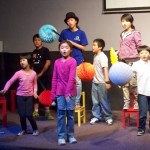 All of this has been accomplished in under a year by students who often compete against older children who have been competing for years in well-established programs. We look forward to building on this success as we expand our program in the coming years.
All of this has been accomplished in under a year by students who often compete against older children who have been competing for years in well-established programs. We look forward to building on this success as we expand our program in the coming years.
Students in our 35-week speech and debate Yearly Survey class will learn the fundamentals of speech and debate events. The events are nearly as varied as the students themselves-each designed to develop and test a student’s skill in a particular area. The camps feature competitive rounds in a tournament structure for each event, helping students to become more proficient thinkers, writers, and speakers.
Our critical thinking class instructs students to use reason to generate sound arguments and to judge arguments they encounter in media or in daily life-giving students the specific tools they need to identify sloppy thinking in others and to eliminate sloppy thinking in themselves. This is important because language is inherently ambiguous. It can be used to persuade, and it can be used to deceive. In this class, these skill sets will be developed through analogies, types of sentence construction, syllogisms, validity, invalidity and soundness, fallacies and symbolic logic.
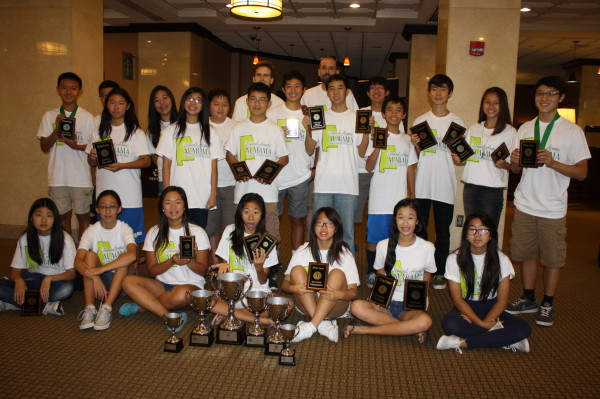 In our persuasive writing class, students will learn how to create and support an argument through the written word. Because up to seventy-five percent of a college student’s grade comes from essays, papers, and blue-book exams, the ability to think and write persuasively is perhaps the biggest factor in academic success in college education. Though it is never too early to learn how to construct a thesis and support it with sound reasoning, many elementary, middle school, and even high school age children have never written an academic paper. Instead, school papers have merely been informative, sharing a collection of ideas found in encyclopedias that require no independent thought. This camp is hopefully the first step in a student’s discovery of written language as a tool for expression.
In our persuasive writing class, students will learn how to create and support an argument through the written word. Because up to seventy-five percent of a college student’s grade comes from essays, papers, and blue-book exams, the ability to think and write persuasively is perhaps the biggest factor in academic success in college education. Though it is never too early to learn how to construct a thesis and support it with sound reasoning, many elementary, middle school, and even high school age children have never written an academic paper. Instead, school papers have merely been informative, sharing a collection of ideas found in encyclopedias that require no independent thought. This camp is hopefully the first step in a student’s discovery of written language as a tool for expression.
The second area of focus is PERFORMANCE SKILLS. A leader not only makes good points but makes them well. He or she is engaging, dynamic, sympathetic, and able to connect with an audience.
Our Drama class teaches students these skills and also develops spatial intelligence-helping children to use their “right brains” as they depict the visual and the intuitive, and teaching them to see the big picture as well as the details. Students develop their kinetic sense, improving coordination and expression through movement. Drama also promotes social skills as students must listen to one another and combine their efforts to produce scenes greater than any one student’s performance.
Storytelling is an excellent way to involve younger students in interpretative and acting skills that will inform all manner of public speaking. Through out-loud Reading, story retelling, and puppet act-out, children develop public speaking skills, organization and writing skills, and at the same time, build character.
In TV News Anchor Training, students learn news headline writing, asking the right questions, tips for facing the camera, fluent news broadcasting, and posture. It incorporates Drama with Acting for the Camera. Students can improve their delivery with a practical sense of world news and become comfortable in front of not just an audience but cameras as well.
Our other performance-based class is Magic stage showmanship. While Magic is capable of inspiring any of us, children are especially fascinated by Magic, and it can be a great catalyst for a shy child as a first step to expand his or her social skills. A good magician not only needs to demonstrate tricks, but also has to develop a captivating storyline, suspense, and climax. Magic combines the art of drama, timing, sleight of hand, and verbal skills.
Our third area of focus is LAW, GOVERNMENT, and CITIZENSHIP. A good leader is also a good citizen, and possesses an understanding of his or her place in the world, and of the strengths and challenges of his or her community.
For the first time in the Summer of 2011, we got a Mock Trial camp. Mock Trial helps students acquire a working knowledge of our judicial system, develop analytical abilities and communication skills, and gain an understanding of their obligations and responsibilities as participating members of our society. Each year, the Constitutional Rights Foundation produces a set of Mock Trial materials which includes a hypothetical criminal case (including summaries of case law, witness statements, official exhibits, and simplified rules of evidence). Kudos will be participating in statewide competition for the first time this Fall, and students in the summer class will get a head start on the fundamentals of Mock Trial by studying a case from a prior year as though it were for competition. Through performance-based education, the program increases basic skills, analytical ability, critical thinking skills, presentations skills, participation skills, and self-confidence.
Law, Government, and Citizenship is the newest area of focus for Kudos College of Youth Leadership, and we will soon be offering other courses aimed at instilling in students a sense of community service and civic responsibility, testing their problem-solving skills as they learn not only to diagnose a problem and advocate its solution, but to act independently-fulfilling their roles as valuable members of our society.
You’ve come to Kudos at an exciting time. We have quickly established ourselves in the community as a pioneer in shaping the next generation of leaders. We hope you’ll allow us to inspire your son or daughter to realize the great potential he or she possesses to grow into a well-rounded young adult as he or she enters college and the working world-into a person who is ready and eager to embrace any and all challenges that come his or her way.
Thank you.
Contact Kudos today to find out which class is right for your child:
(626) 286-6889



